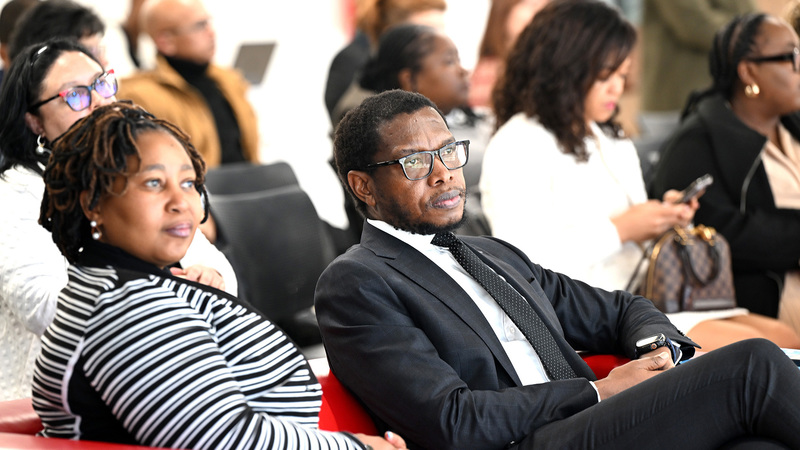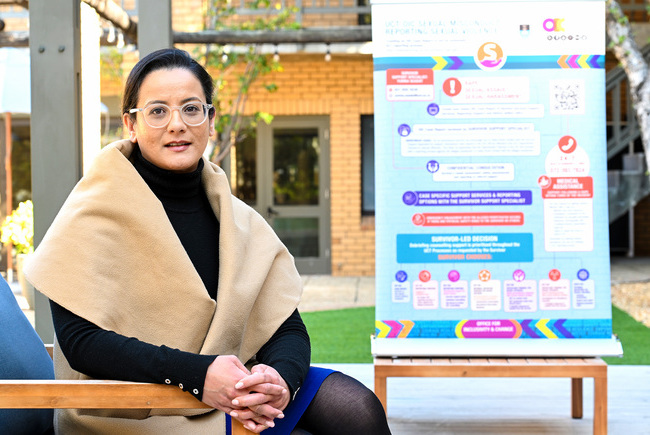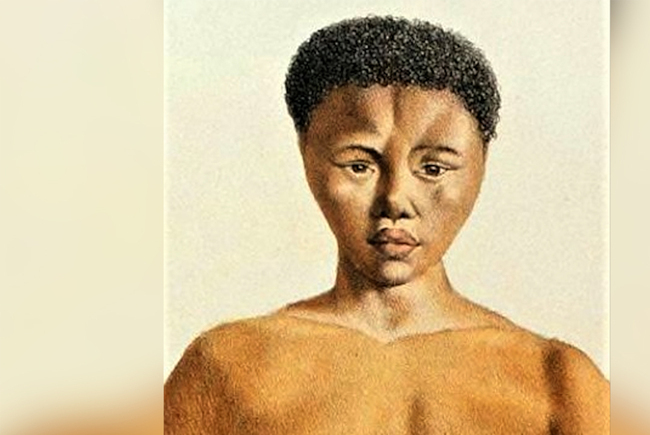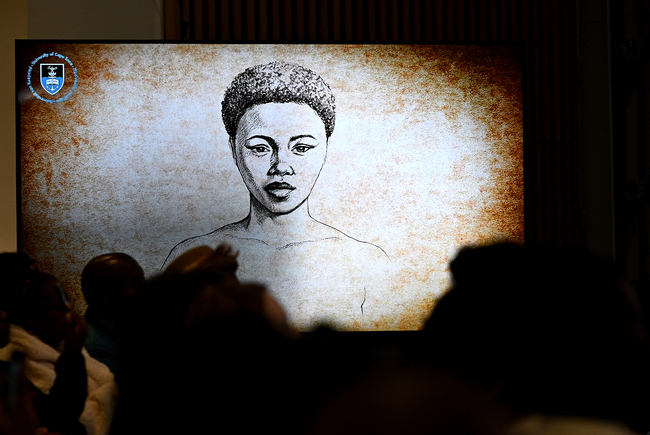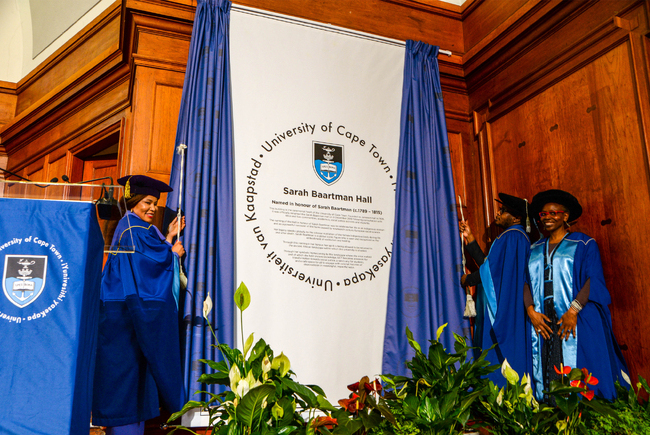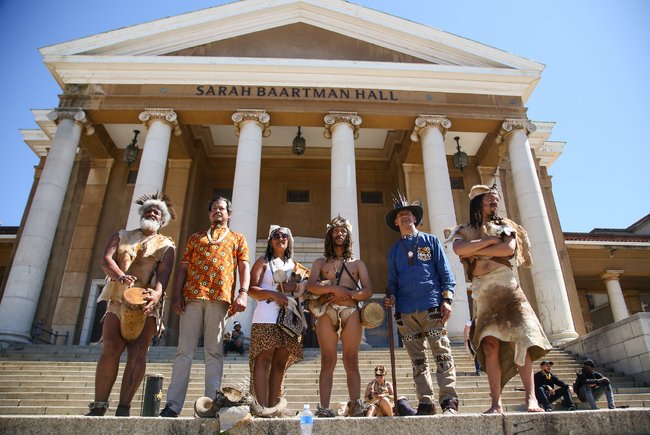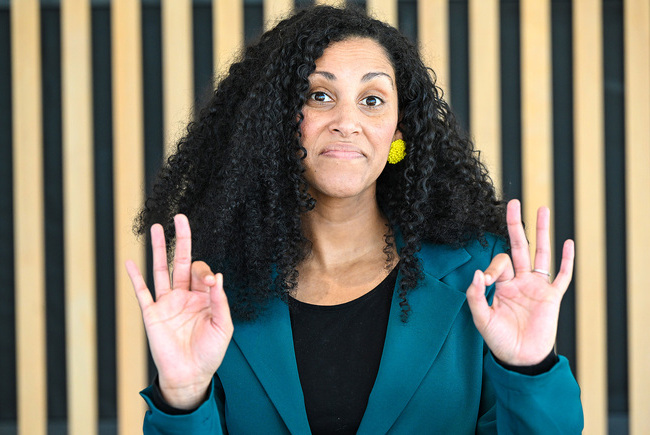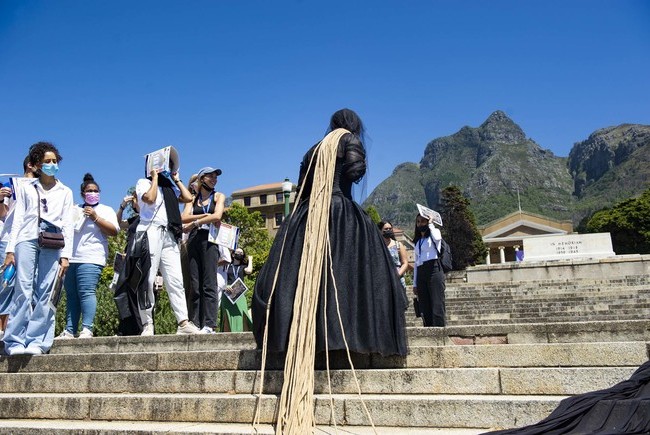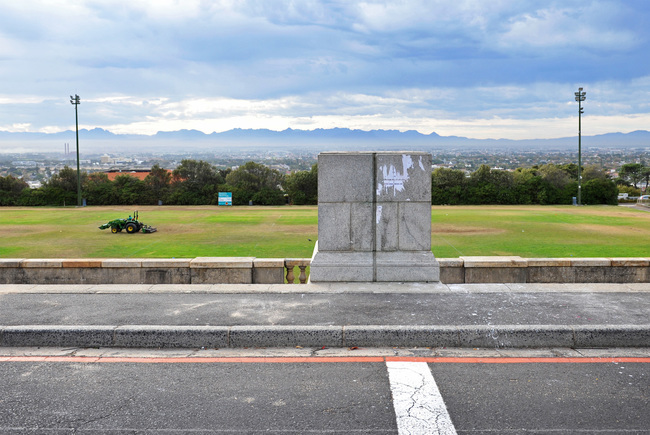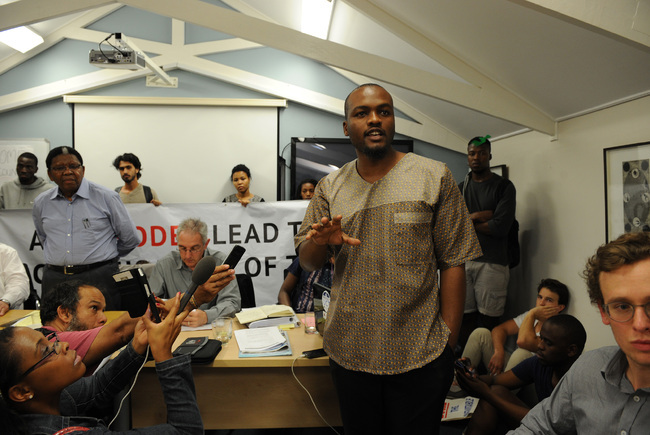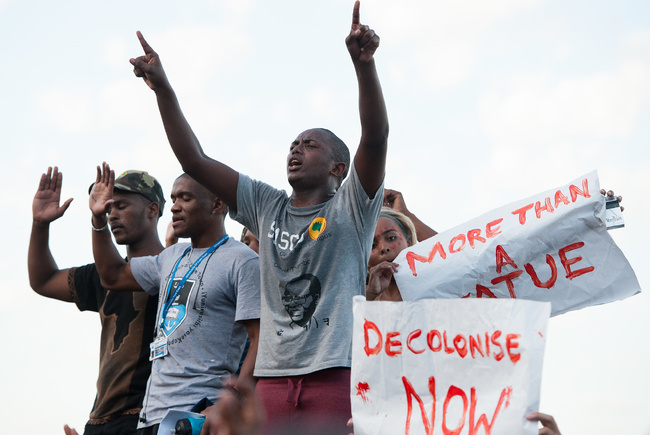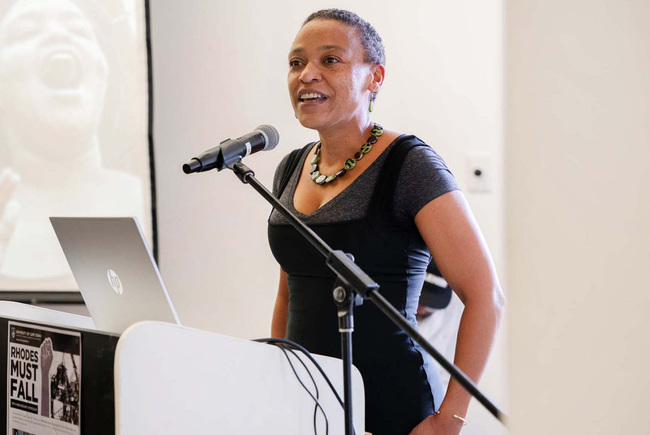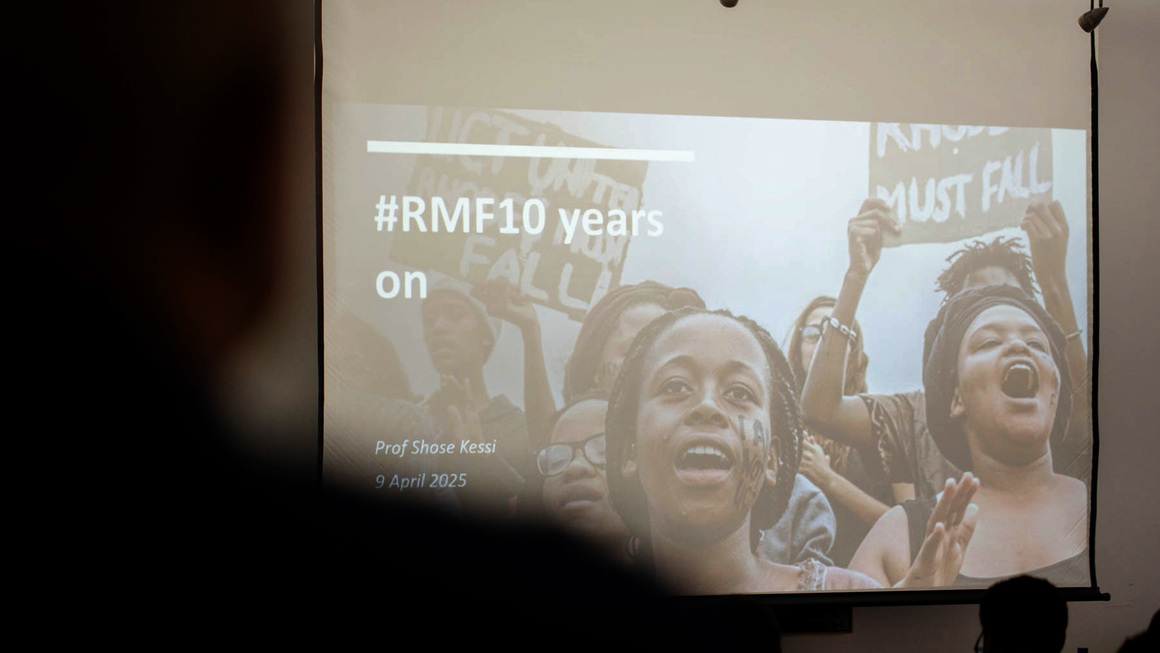Disability services support accelerated
25 July 2025 | Story Kamva Somdyala. Photos Lerato Maduna. Video Production Team Boikhutso Ntsoko, Kamva Somdyala, Ruairi Abrahams and Nomfundo Xolo. Read time 4 min.Advancing requisite disability access was under discussion as the University of Cape Town (UCT), the FirstRand Foundation and other key stakeholders celebrated the Access4ALL programme. Several speakers said it was a critical component towards transformation during an event on 22 July.
The Access4ALL project, also supported by the Higher Education Disability Services Association (HEDSA), is a commitment to transforming higher education into a truly inclusive space for all students. This initiative recognises that too many institutions lack the infrastructure, capacity and systems to adequately support students with disabilities. Therefore, it responds directly to the gaps identified in the 2018 Department of Higher Education and Training (DHET) Disability Framework, which highlighted the absence of dedicated disability units at several South African universities.
In attendance were UCT representatives, who are the project leaders, as well as leaders from Rhodes University, Sol Plaatje University, Mangosuthu University of Technology and the University of Zululand. Since its inception, the project has achieved significant milestones including completing a national situational analysis, onboarding four universities who have been capacitated with resources and training, as well as a robust set of training modules ranging from disability advocacy to universal design.
“It is through people in the Disability Service framework that ensure we talk about disability services at UCT. It is part of transformation, and we take transformation seriously. It is, for us, about leaning into our strength of diversity,” UCT Vice-Chancellor Professor Mosa Moshabela said. “As UCT, we are committed to ensuring inclusion in all that we do. A big thank you to our partners because often we find that we don’t have the resources to implement programmes which speak to ideas of transformation. The power of collaborative efforts is on display with this launch.”
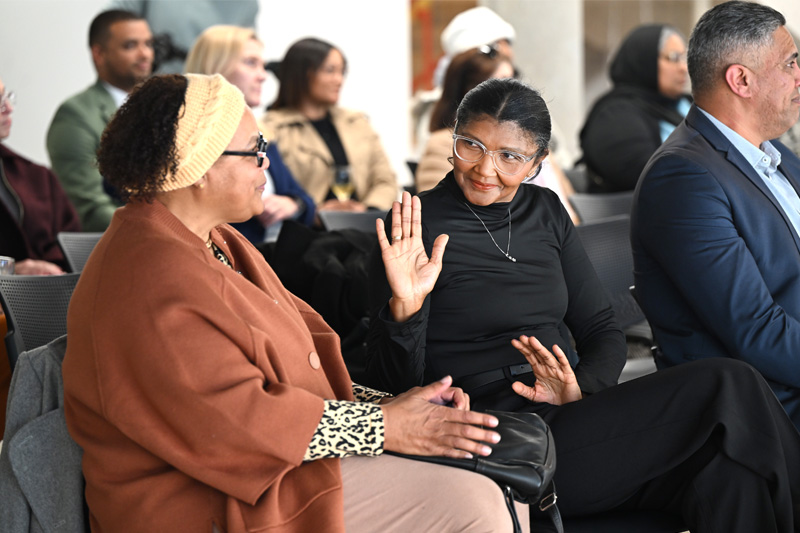
Edwina Ghall, the manager of the Disability Service in UCT’s Office for Inclusivity & Change (OIC), said: “The idea was formed in 2021. When we looked at the project, we looked at how it would impact UCT and within the disability sector. This is an impact project. Through the support of the FirstRand Foundation, we could bring the project to life. Although UCT was looked at as the benchmark, we are also learning from other institutions,” said Ghall.
“When we started with the institutions to create inclusion, we understood that it is our own biases that we need to put aside and getting common ground about what we wanted to achieve and how we were going to achieve it. We also considered who the partners needed for that collaboration are so that from the fruits of that labour, students and the community benefit.”
Pathway for other institutions
Noluthando Ticha-Ntsimango, from the OIC, echoed Ghall’s sentiments: “It is an honour to reflect on where we are at as UCT and where we come from as a service and to recognise that where the other institutions are right now (in terms of establishing units) is a space we come from and that’s worth celebrating.”
The CEO of FirstRand Foundation, Konehali Gugushe, said this initiative was in keeping with their focus on institutional capacity building. “We have various pillars we support, such as access to education, but this one assesses and engages with institutions of higher learning on a case-by-case basis in terms of what is important for them … to help them improve their experiences of teaching and learning [and] helping them organise their institutions in an accessible manner which improves their stature. Universities like UCT can help guide and provide a pathway for other institutions who are new to this.”
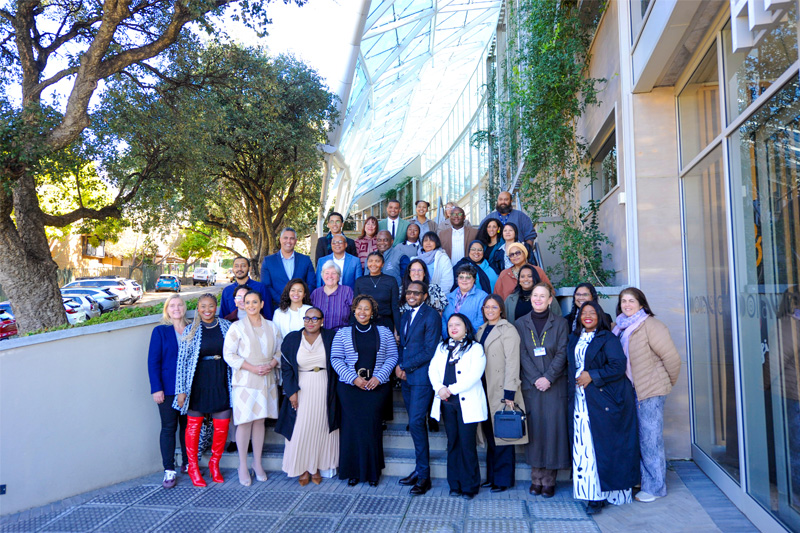
One of the universities, Mangosuthu University of Technology (MUT), revealed that they will be launching their disability support unit in August. “When the unit is established, it will be a tangible beacon of transformation. It is the responsibility of each student and staff member to make it their mission, individually and collectively, to advocate for disability inclusion. Every student has the responsibility to understand what disability entails; the rights of people with disabilities and how to apply that level of awareness in their interactions. They also ought to inform and share this knowledge with their peers, so it becomes a collective consciousness that sends a message that higher education is accessible for all students,” said MUT director of Student Affairs, Dr Paulette Naidoo.
 This work is licensed under a Creative Commons Attribution-NoDerivatives 4.0 International License.
This work is licensed under a Creative Commons Attribution-NoDerivatives 4.0 International License.
Please view the republishing articles page for more information.
Ten Years of Transformation at UCT
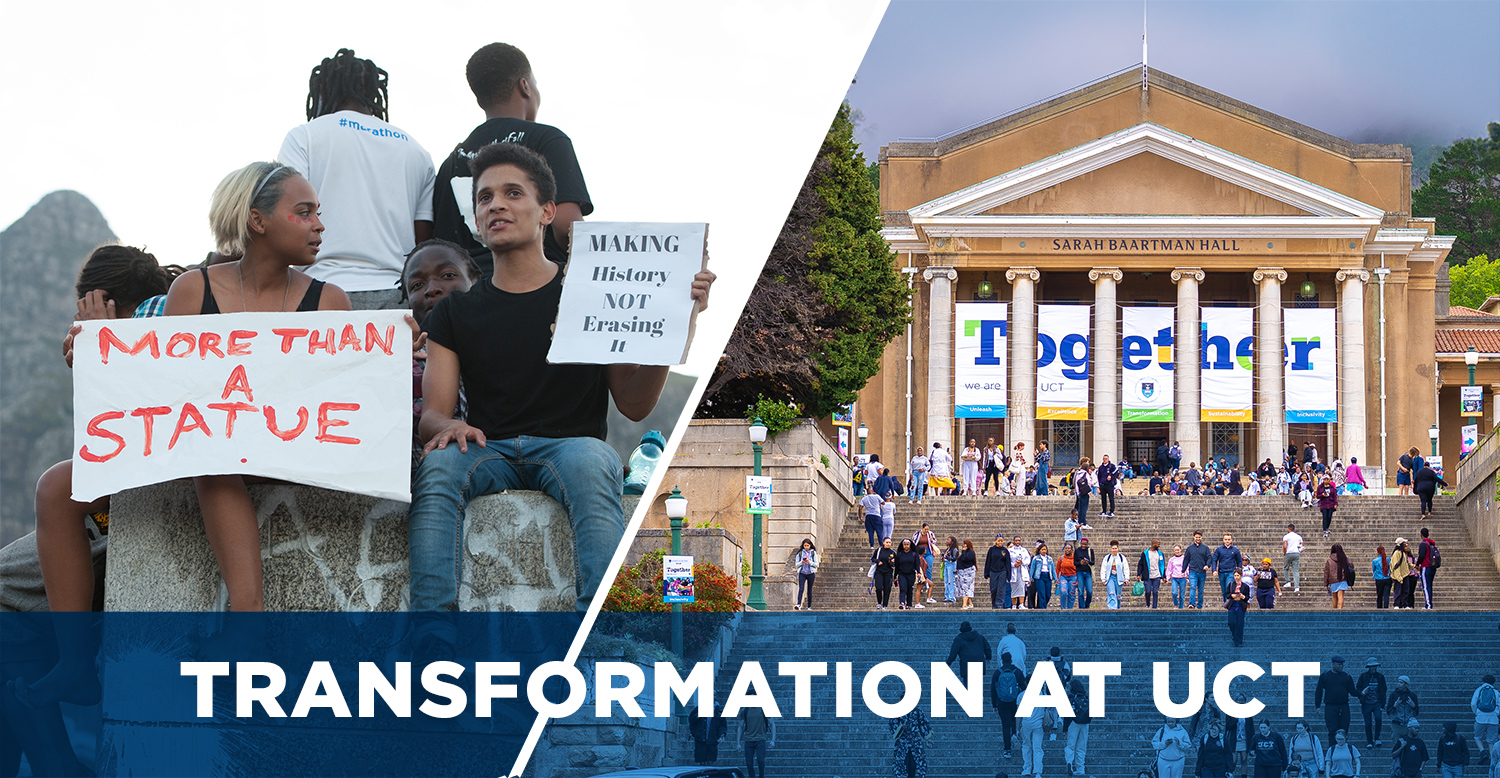
The University of Cape Town’s (UCT) Vision 2030 strategy’s goal is to unleash human potential in pursuing a just and fair society. This vision is built on three core pillars: sustainability, excellence, and transformation. Aligned with this strategy, UCT has implemented a range of transformative initiatives to foster a more inclusive, non-discriminatory academic environment. These efforts reinforce the university’s commitment to becoming a place where all individuals feel respected, valued, and have a true sense of belonging.

The Rhodes Must Fall movement is one of the student-led societal uprisings that can rightfully claim to have reignited decolonial discourse and scholarship in the African continent and beyond.
18 Mar 2025 - 8 min read RepublishedIn the news
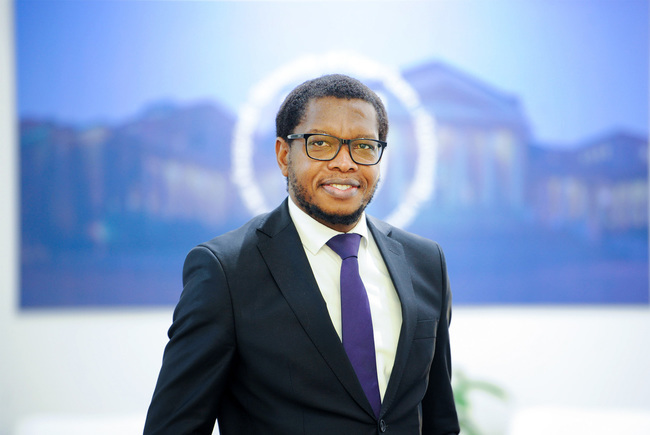
UCT Vice-Chancellor Prof Mosa Moshabela outlines the role of universities in South Africa’s future.
24 Jul 2025 - >10 min read RepublishedVideo
“... that was a really good moment and it changed a lot of things... the impact of that movement at UCT has been really phenomenal.”
– Prof Shose Kessi, Dean of Humanities



